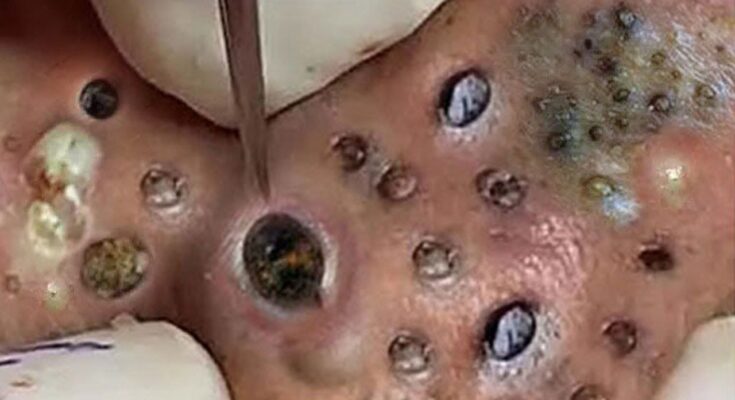Sure, let’s explore how to protect your skin from pimples and maintain a clear complexion. This guide will cover various aspects, including skincare routines, diet, lifestyle changes, and professional treatments.
Understanding Pimples
Pimples, also known as acne, are caused by clogged hair follicles and sebaceous (oil) glands. They can be triggered by factors like hormones, bacteria, excess oil production, and dead skin cells. Understanding these factors can help you take proactive steps to prevent pimples.
Skincare Routine
A consistent skincare routine is crucial for preventing pimples. Here’s a step-by-step guide:
1. Cleansing
- Morning and Night: Cleanse your face twice a day with a gentle, non-comedogenic cleanser to remove dirt, oil, and makeup. Over-cleansing can strip your skin of natural oils, leading to more oil production and potential breakouts.
2. Exfoliating
- Weekly: Exfoliate 1-2 times a week to remove dead skin cells that can clog pores. Use a mild exfoliant with ingredients like salicylic acid or glycolic acid.
3. Toning
- After Cleansing: Apply a toner with ingredients like witch hazel or tea tree oil to help balance your skin’s pH and tighten pores.
4. Moisturizing
- Daily: Use a lightweight, oil-free moisturizer to keep your skin hydrated. Even oily skin needs moisture to prevent overproduction of oil.
5. Sun Protection
- Daily: Apply a broad-spectrum sunscreen with at least SPF 30 every day, even if you’re indoors. Sun exposure can aggravate acne and lead to dark spots and scarring.
Diet and Nutrition
What you eat can significantly impact your skin. Here are some dietary tips:
1. Hydration
- Daily: Drink plenty of water to keep your skin hydrated and flush out toxins.
2. Balanced Diet
- Ongoing: Eat a diet rich in fruits, vegetables, whole grains, and lean proteins. Avoid high-glycemic foods like sugary snacks and refined carbs, which can spike insulin levels and trigger acne.
3. Healthy Fats
- Regularly: Incorporate omega-3 fatty acids found in fish, flaxseeds, and walnuts, which have anti-inflammatory properties.
4. Probiotics
- Regularly: Consume probiotics found in yogurt, kefir, and fermented foods to promote a healthy gut microbiome, which can positively affect your skin.
Lifestyle Changes
Your lifestyle choices can also influence your skin’s health. Consider these changes:
1. Stress Management
- Daily: Practice stress-reducing activities like yoga, meditation, or deep breathing. Stress can increase cortisol levels, leading to increased oil production and breakouts.
2. Exercise
- Regularly: Engage in regular physical activity to improve blood circulation and reduce stress. Make sure to cleanse your skin after sweating to prevent clogged pores.
3. Sleep
- Nightly: Aim for 7-9 hours of quality sleep each night. Poor sleep can disrupt hormone levels and lead to skin issues.
Avoiding Common Triggers
Some habits can contribute to acne. Here’s what to avoid:
1. Touching Your Face
- Always: Avoid touching your face with unwashed hands to prevent transferring bacteria and oil to your skin.
2. Picking or Popping Pimples
- Never: Resist the urge to pick or pop pimples, as this can lead to infection, scarring, and further breakouts.
3. Using Harsh Products
- Avoid: Stay away from products with alcohol, fragrances, or harsh chemicals that can irritate your skin.
Professional Treatments
If over-the-counter products and lifestyle changes aren’t enough, consider professional treatments:
1. Dermatologist Consultation
- As Needed: A dermatologist can prescribe topical or oral medications, such as retinoids, antibiotics, or hormonal treatments, tailored to your skin type and acne severity.
2. Chemical Peels
- Periodically: These treatments remove the top layer of skin to reveal smoother skin underneath and can help reduce acne and scars.
3. Laser and Light Therapy
- Periodically: These treatments target bacteria and reduce inflammation, helping to clear up acne.
4. Extraction
- As Needed: Professional extraction of blackheads and whiteheads can prevent them from turning into larger pimples.
Natural Remedies
Some people find relief from acne using natural remedies, though their effectiveness can vary:
1. Tea Tree Oil
- Spot Treatment: Known for its antibacterial properties, tea tree oil can be applied directly to pimples.
2. Aloe Vera
- Soothing Gel: Aloe vera has anti-inflammatory properties and can help soothe irritated skin.
3. Honey and Cinnamon Mask
- Weekly: A mask made of honey and cinnamon can have antibacterial and anti-inflammatory effects.
Consistency is Key
Preventing pimples requires consistency and patience. Here are some final tips:
1. Be Patient
- Long-term: It can take weeks or even months to see significant improvements, so don’t get discouraged if results aren’t immediate.
2. Stick to Your Routine
- Daily: Adherence to your skincare and lifestyle routines is crucial. Skipping steps can lead to setbacks.
3. Adjust as Needed
- Periodically: Your skin’s needs can change with the seasons, age, or other factors. Be flexible and adjust your routine accordingly.
By following these guidelines, you can create a comprehensive approach to protecting your skin from pimples and maintaining a healthy, clear complexion. Remember, everyone’s skin is different, so it might take some experimentation to find what works best for you.
